In our recent feature, The Immortals of Poker: Tom "durrrr" Dwan, the High-Stakes Maverick, we traced Dwan’s remarkable journey from a $50 online bankroll to becoming one of poker’s most iconic figures. His rise through the ranks of Full Tilt Poker and his fearless showdowns on High Stakes Poker helped define an entire era of the game. But there’s one chapter in his story that remains cloaked in secrecy—the years he spent in Macau, playing in what many consider the biggest and most mysterious cash games in poker history.
Frequently mentioned but rarely explored in depth, the Macau era represents one of the most enigmatic and exclusive periods of the modern poker boom. These weren’t televised tournaments or streamed high rollers. They were off-the-record, behind closed doors—no cameras, no hand histories, no public access. Just whispered stories, unconfirmed legends, and the occasional grainy photograph.
For a younger generation of poker fans, “the Macau games” have taken on a mythical quality—spoken of in hushed tones, with names like Phil Ivey, Tom Dwan and John Juanda orbiting tables stacked with millions. In this article, we pull back the curtain on that hidden world to revisit the smoky VIP rooms of Asia’s gambling capital, where intuition ruled, stakes soared, and the rules of the game were often as informal as the invitations to play.
The Birth of a High-Stakes Mecca
In November 2010, Macau quietly became the center of the poker world—not because of a major tournament victory, but because of what was happening just beyond the spotlight.
That month, the Asia Pacific Poker Tour (APPT) Macau set a new regional record with 429 entries and a prize pool exceeding $2 million. The field featured elite names like Johnny Chan, Chris Moneymaker, Bertrand “ElkY” Grospellier, Joe Hachem, and Liv Boeree. But while the event itself was historic, something far more extraordinary was unfolding in the background.
A handful of top-tier pros—Tom Dwan, Phil Ivey, Chau Giang, and John Juanda—had stumbled upon what would later be dubbed the “Macau Big Game”: an ultra-private, ultra-high-stakes cash game series taking place in the VIP rooms of the StarWorld Casino and the Hard Rock Hotel. Blinds reportedly started at HKD 5,000/10,000 (roughly $650/$1,300 USD), and pots reaching into the millions weren’t uncommon.
These weren’t games you could simply buy into. Admission required more than a bankroll—it demanded trust, relationships, and, in many cases, the blessing of the local billionaires who dominated the action. Many of these Chinese businessmen had discovered poker only recently, but they played fearlessly, cared little about money, and had little patience for tight, technical professionals. If the pace slowed, they simply doubled the blinds.
According to tournament director Matt Savage, Dwan made Day 2 of the APPT Main Event but had no intention of finishing it. He showed up the next day, shoved all-in with T-4 offsuit in the first hand, and when his bluff failed and he doubled up instead, he left anyway—asking to be called only if his chip stack dropped below 20 big blinds. At that point, the real game had already begun elsewhere.
Juanda was rumored to be the biggest winner in those early sessions. Dwan, Ivey, and Chau reportedly took six-figure hits—though in a game where seven-figure pots were possible, such swings were par for the course.
Sessions stretched for 20 to 30 hours at a time, often running for five or six consecutive days. The atmosphere was intense but not hostile—equal parts bravado, camaraderie, and quiet competition. One local player earned the nickname “All-in” for his predictable pattern of shoving every flop after raising preflop.
There were no livestreams, no tracking software, no database entries—just private games, whispered reports, and the occasional blurry photo leaked to an online forum. A golden era was beginning, but only a few people knew it at the time.
Inside the Game: Chips, Paper Slips, and Million-Dollar Pots
While most details of the Macau Big Game remained locked behind VIP doors, occasional glimpses surfaced—thanks in large part to one man: Tom Hall, a well-connected businessman and longtime Macau resident better known on poker forums as HongKongTom.
Hall, who played in many of the games himself, became a rare and credible voice on the TwoPlusTwo forums, offering first-hand accounts that gave the poker world something it sorely lacked: context. In one such post, he recalled walking into the StarWorld Casino’s VIP room after a few months away—only to be stunned by what he saw.
“Two well-known international pros were sitting behind literal towers of chips,” he wrote. “Every other seat was taken by Chinese businessmen. There were so many chips on the table that there was barely enough space left to deal the cards.”
Eventually, they ran out of high-denomination chips altogether. Players began scribbling IOUs on paper slips—each worth HKD 5 million, or roughly $650,000 USD. According to Hall, there was close to $20 million USD in play during that session alone.
The blinds at that moment stood at $4,000/$8,000, but Hall was told they had peaked earlier at $12,500/$25,000. Even the smallest stack at the table was reportedly over $1 million. “This wasn’t the kind of game you just wandered into,” he quipped. “Unless you had a defibrillator handy.”
Despite the gravity of the stakes, Hall described the mood as surprisingly social. The regulars knew each other well. Some had been playing together for years, and the sessions had a kind of rhythm—20- to 30-hour marathons, broken by four-hour rest periods, then starting all over again. “These games have been running nonstop for nearly three years,” Hall noted. “They only stop when a major tournament draws people away overseas.”
In one of the wildest hands he witnessed, a Western pro and a Chinese amateur ended up all-in for a $5.1 million pot after a flurry of action on a K-T-7 flop, a second ten on the turn, and a five on the river. Both turned over A-T. Chop pot.
Hall also described seeing bluffs for $700,000 to $800,000 with pure air—sometimes called, sometimes not.
It was a world apart from televised cash games or nosebleed online stakes. And it’s no coincidence that many of the players from these sessions would later show up in WSOP $1 million buy-in events like the Big One for One Drop. For some of them, those stakes were barely above average.
Durrrr’s $11.4 Million Pot: A Documented Macau Spectacle
Among the many rumors that swirled around the Macau Big Game, few hands were ever confirmed with certainty. But every so often, a story emerged that was both too specific and too credible to dismiss. One such hand featured none other than Tom Dwan—durrrr himself—dragging a pot that would become one of the largest publicly reported in live poker history.
According to multiple sources close to the action, Dwan was playing in a game with blinds of $20,000/$40,000—a level of stakes that had become surprisingly routine in the upper echelons of Macau’s VIP rooms. What followed was a three-way preflop all-in that sent shockwaves through the poker world:
- Dwan: A♠ K♠
- Player 1: J♦ J♣
- Player 2: T♥ T♠
An ace hit the board, giving Dwan top pair and the entire pot. There were no side pots, no insurance deals—just a clean scoop. The final tally? HKD 89 million, or approximately $11.42 million USD.
The hand made headlines across the global poker community—not just for its size, but for the fact that it was actually verified. In a world built on anecdotes and partial truths, here was a hand with names, numbers, and confirmation from those who had seen it unfold.
And yet, even this moment—astonishing as it was—may not have been the biggest. Insiders suggested that larger pots had been played and never spoken of, let alone documented. In Macau, where trust often replaced contracts and reputation carried more weight than chips, some hands were simply never meant to leave the room.
Still, this $11.4 million pot stands as a rare snapshot of the game's true scale—an emblem of a time when the most aggressive minds in poker met the deepest pockets in Asia and pushed the limits of what a single hand could mean.
Boomtown Macau: The Casino Capital Behind the Cards
The rise of the Macau Big Game didn’t happen in isolation. It was part of a much larger story—one of explosive growth, unregulated wealth, and a city rapidly outpacing even Las Vegas as the global capital of gambling.
By 2011, Macau’s casino industry was posting numbers that seemed almost surreal. According to the region’s Gaming Inspection and Coordination Bureau, annual casino revenue exceeded $33.5 billion USD, a 42% increase from the year before. For comparison, the combined revenue of the 20 largest commercial casino markets in the United States still fell short of that figure. And Macau wasn’t slowing down—analysts projected an additional 20–30% growth in 2012.
“Put into perspective, Macau’s revenue and growth are unmatched globally,” noted Grant Govertsen of Union Gaming Group at the time. “Macau’s casino revenue is 5.5 times that of the Las Vegas Strip, and its growth rate is roughly ten times higher.”
Fueling this boom was a flood of high-net-worth individuals from mainland China, funneled into the city’s VIP rooms by an intricate network of junket operators. These middlemen provided credit, organized travel, and ensured discretion—offering the kind of personalized service that allowed players to wager millions, often without physically transferring cash.
And the infrastructure was evolving just as quickly. Major transportation projects, including a light rail link between Macau and Guangzhou, promised to bring even more elite gamblers to the city’s glittering casino floors and behind-the-scenes poker rooms.
In this climate, the emergence of the Big Game felt almost inevitable. The city offered everything high-stakes poker needed to thrive: vast wealth, limited regulatory oversight, a culture of social gambling, and a steady stream of players who viewed variance as entertainment.
There were even whispers about moving the Big Game online, but the idea never gained traction. The heart of Macau’s allure was its exclusivity—the smoke-filled VIP rooms, the whispered deals, and the thrill of games that no one else could see, let alone join.
The Insider Voice: HongKongTom and the Window into the Big Game
For all the mystery surrounding the Macau Big Game, one name consistently surfaced as a rare source of clarity: Tom Hall, better known in poker circles as HongKongTom. A businessman rather than a full-time pro, Hall wasn’t just a participant—he was a connector, a translator between two poker worlds, and perhaps the most credible chronicler of this hidden era.
Hall had deep roots in the Asian gaming scene. As the co-founder of AsianLogic—the company behind major brands like Dafabet and DafaPoker—he was already embedded in the region’s gambling ecosystem. But it was his presence at the table, and his willingness to share glimpses of that world on the TwoPlusTwo forums, that made him a legend in his own right.
In a 2014 Pokernews interview titled “The Road to Hong Kong: Tom Hall’s Journey from England to Macau’s Biggest Cash Game”, Hall recalled the game’s early days at Wynn Macau, where stakes began at HKD 1,000/2,000. By 2010, they had skyrocketed. The lineup he described during the now-infamous APT Macau week reads like a high-stakes dream table: Paul Phua, Richard Yong, Johnny Chan, Phil Ivey, John Juanda, and of course, Tom Dwan.
Hall wasn’t just observing—he was in the mix. He remembered doubling up with set over set against Richard Yong, and later winning a monster pot with the nut flush against Johnny Chan’s second nuts. But what made his accounts so compelling wasn’t just the action—it was the access. His forum posts, though deliberately vague on names and specifics, were rich with detail and authenticity. For an audience starved of insight into the Big Game, Hall’s updates were gold.
He later adopted a strict policy: no player names, no photos, no matter how tempting the story. “We didn’t realize at first how globally visible the thread would become,” he admitted. “After that, I became very careful about what I shared.”
Hall never claimed to be the best player in the room—he often joked that he was the fish once the pros really sharpened up. But he loved the atmosphere, the camaraderie, and the sheer audacity of the stakes. He wasn’t just part of the game; he helped document it, shaping much of what the outside world would ever know about Macau’s most mythologized poker era.
The Fall of Macau's High-Stakes Poker Scene: Corruption Crackdowns and Organized Crime
By the mid-2010s, the energy that once defined the Macau Big Game began to fade. The games didn’t implode—but they quietly disappeared, pulled under by forces far beyond the poker table.
One of the most decisive was the Chinese government’s sweeping anti-corruption campaign, launched in 2013 under President Xi Jinping. Its target: lavish spending by government officials and wealthy elites, especially in gambling hubs like Macau. The city’s VIP rooms, long seen as havens for discreet high-stakes play, came under intense scrutiny. High rollers from the mainland, once the backbone of Macau’s casino profits, stopped showing up. The effect was immediate. In 2015, casino revenues dropped nearly 40% year-over-year, marking one of the steepest declines in the city’s history.
Tied closely to this was the junket system—a network of intermediaries who extended credit, facilitated travel, and smoothed over the logistical gaps between deep-pocketed Chinese gamblers and Macau’s casino floors. But many of these junket operations were rumored to have links to organized crime syndicates, including the infamous 14K Triad. These groups reportedly helped enforce debts, move money discreetly, and ensure order in games that operated outside formal oversight.
As the Chinese government cracked down, junket rooms closed, and their influence waned. Without the infrastructure they had built—financial, social, and sometimes physical—the Macau high-stakes ecosystem began to unravel.
Even within the poker world, whispers of non-payment and veiled threats began to circulate. A few Western pros spoke privately about massive wins that went unpaid, or about being asked to “settle” for less than what they were owed. In an environment governed more by reputation and relationships than contracts, enforcement could be... informal.
And then came COVID-19. Travel bans and quarantines halted international play, and Macau—once bustling with jet-setters and multi-day poker marathons—fell silent. Even after the casinos reopened, the rhythm was gone. The momentum never returned.
What had made Macau unique—its mix of wealth, discretion, cultural contrast, and sheer scale—had been disrupted on every level. The high-stakes poker scene, once unrivaled anywhere in the world, quietly receded into legend.
Epilogue: The End of an Era
The Macau Big Game was never meant to last forever. It existed in a narrow window of time—a perfect storm of wealth, risk tolerance, and secrecy—when everything aligned to make the impossible feel ordinary. Multi-million-dollar pots, games running for days, and a rotating cast of poker legends and billionaires played out behind closed doors with no cameras, no audience, and no written rules.
And that was precisely the magic.
It wasn’t about trophies or titles. There were no sponsorships, no TV crews, and no social media highlights. The allure of Macau was in what it concealed: the unknown stakes, the unseen hands, and the quiet understanding that what happened in the room stayed in the room. It was poker at its most primal—ego, intuition, endurance, and nerve.
But like all things built on fragile ecosystems, it couldn’t hold. Political pressure, economic shifts, regulatory crackdowns, and the tightening grip on organized gambling slowly dismantled the foundation. The whispers stopped. The games dried up. And a chapter of poker history closed—not with scandal or spectacle, but with silence.
Still, for those who were there—or who followed from afar through cryptic forum posts and half-confirmed stories—the legend of Macau endures. Not just as the biggest game ever played, but as the last one that felt truly untouchable.
Because in an era of solvers, live streams, and complete information, the Macau Big Game remains one thing poker may never see again:
A mystery.

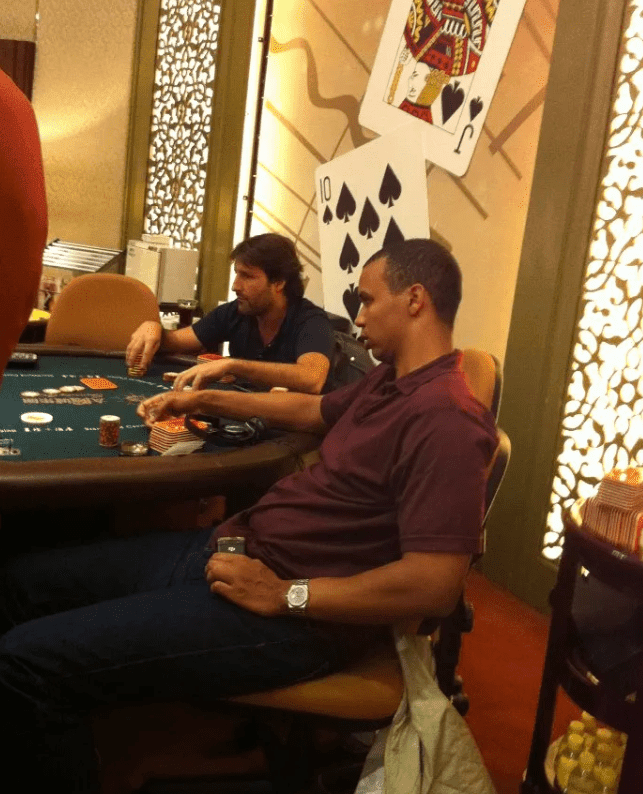
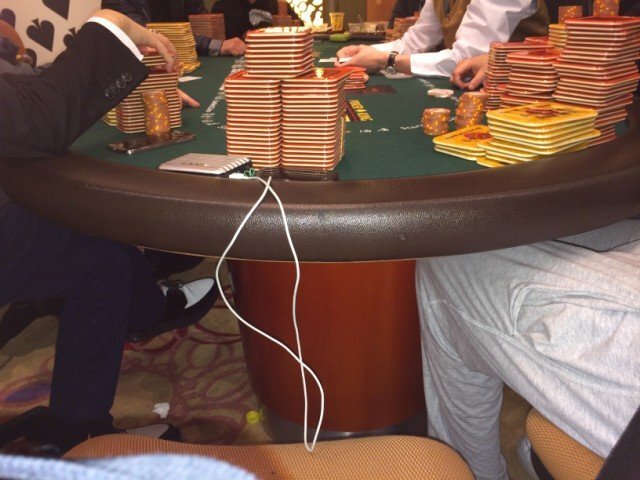
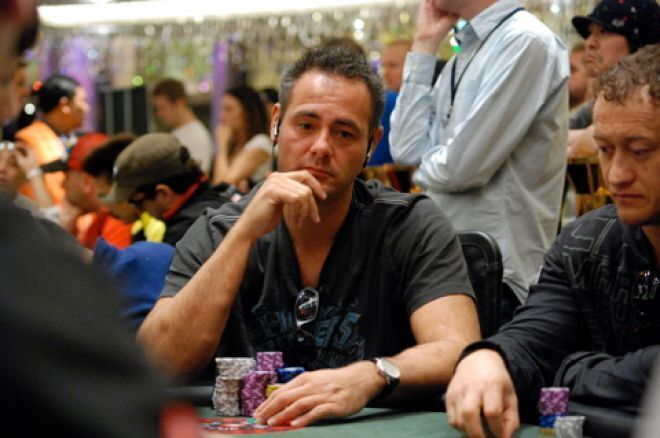

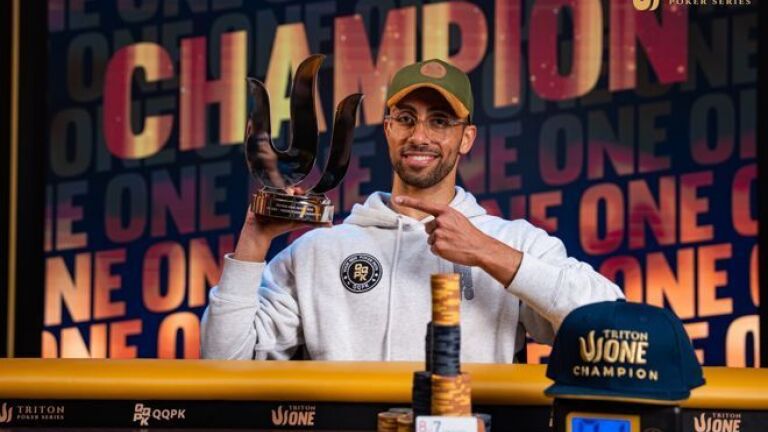
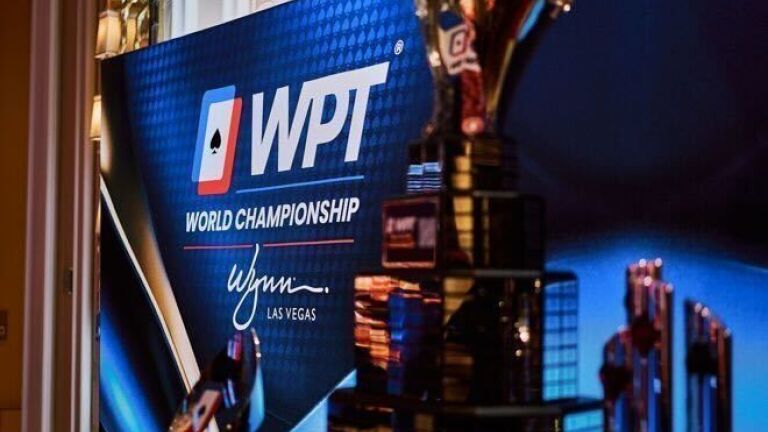

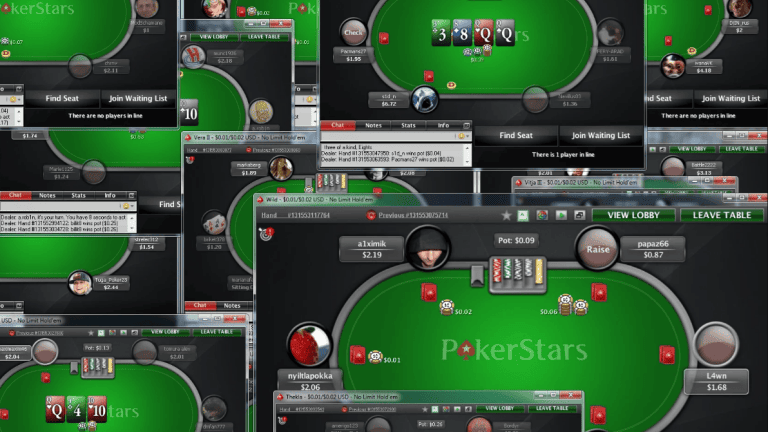










0 comments